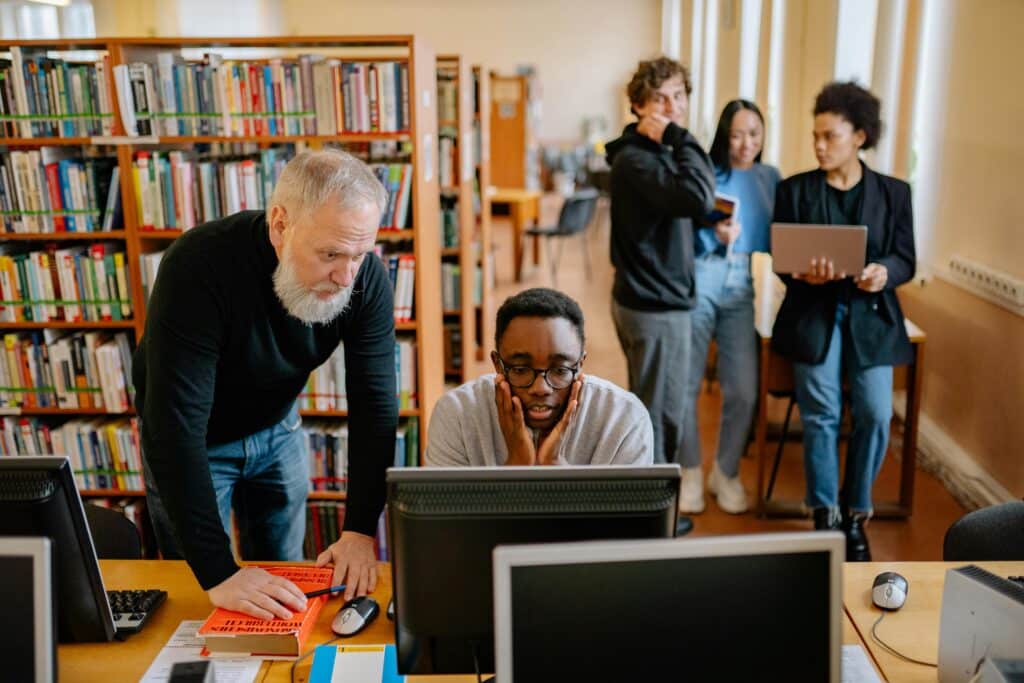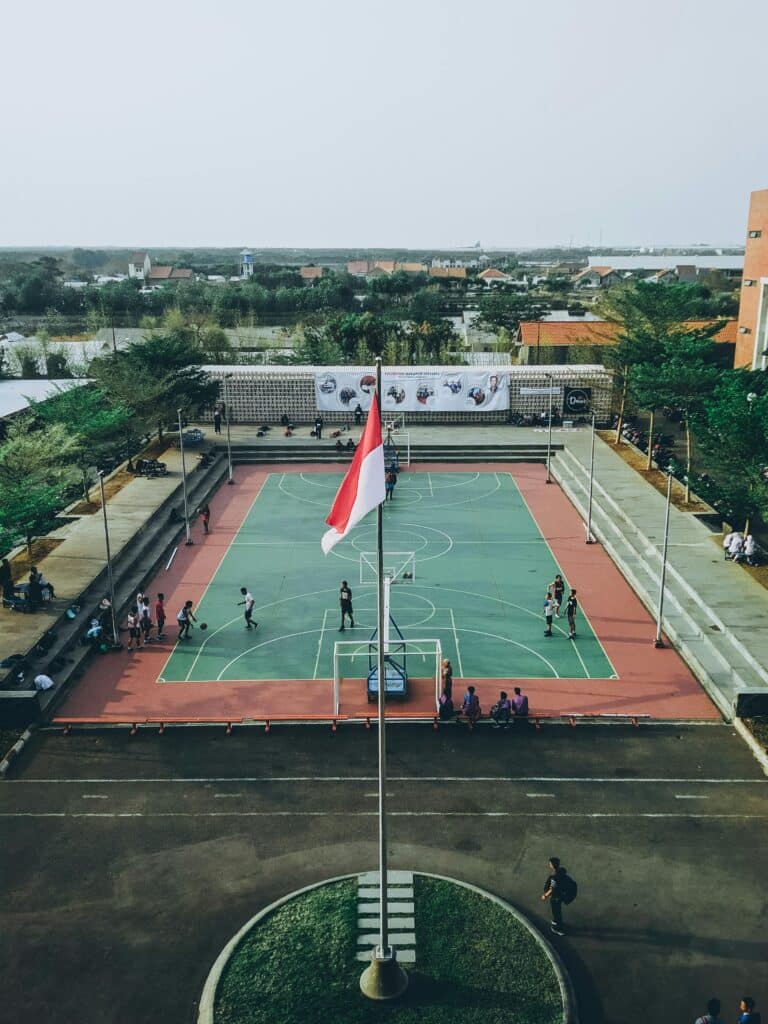12 Skills Every Student Needs to Survive College (Hint: Not Math)

High school didn’t prepare you for college’s real challenges. Sure, you mastered calculus and memorized historical dates, but can you manage a packed schedule without burning out? Do you know how to build meaningful connections with professors who could change your career trajectory?
This guide is for incoming freshmen, transfer students, and anyone feeling overwhelmed by college life. You’ll discover 12 essential skills that determine whether you thrive or merely survive your college years.
We’ll dive deep into mastering time management to balance academics with your social life, plus show you how to develop study habits that actually stick. You’ll also learn the art of building strong relationships with professors and peers – connections that often matter more than your GPA when it comes to future opportunities.
These aren’t theoretical concepts you’ll forget after finals. They’re practical skills you’ll use every day, from your first semester through graduation and beyond.
Master Time Management for Academic and Life Balance

Set clear, measurable goals and maintain detailed schedules
Effective time management begins with identifying what draws your focus away from studies and setting specific goals to eliminate these distractions during dedicated study periods. Whether it’s excessive social media checking, personal phone calls, or aimless web browsing, establishing clear boundaries transforms these time-wasters into rewards for completing tasks.
Prioritize tasks based on urgency and importance
Creating a comprehensive to-do list allows you to prioritize assignments based on deadlines and time requirements, giving you a structured plan for each day. Consider your energy levels and mood when scheduling – tackle creative writing assignments when feeling inspired, or focus on exam preparation when your concentration peaks.
Eliminate distractions like social media to boost productivity
Students face constant bombardment from notifications and social media temptations, especially when course content becomes challenging or less engaging. Turn off devices and close browser windows to avoid losing focus, as multitasking ultimately reduces productivity and prevents you from completing tasks efficiently.
Develop Effective Study Habits That Actually Work

Use Active Engagement Techniques like Summarizing and Concept Mapping
Active engagement transforms passive reading into meaningful learning. Research shows that simply re-reading texts leads to quick forgetting, while techniques like summarizing information in your own words and creating concept maps significantly improve retention. Visual learners particularly benefit from mind mapping, which organizes information in diagrams that mirror how our brains store and retrieve knowledge.
Apply Spaced Repetition for Deeper Learning and Retention
Spaced practice, or distributed practice, encourages studying over extended periods instead of cramming. When your brain almost forgets something, it works harder to recall that information, creating stronger neural pathways. Follow a systematic review schedule: Day 1 learn the material, Day 2 revisit, Day 3 review again, then after one week and two weeks. This method allows your mind to make connections between ideas and build knowledge that can be easily recalled later.
Avoid Multitasking During Study Sessions to Reduce Stress
Research clearly indicates that multitasking negatively affects learning results and increases the time needed to master material. Social media, texting, and web browsing severely compromise study session intensity and quality. Eliminating distractions allows full engagement during study time – turn off phones, use apps to limit website access, and create dedicated study environments. Intensive, focused 30-45 minute sessions prove more effective than drawn-out studying with constant interruptions.
Build Strong Relationships with Professors and Peers

Engage actively through office hours and class participation
Active classroom participation and strategic use of office hours form the foundation of meaningful professor-student relationships. Research shows that students with positive instructor relationships experience enhanced academic achievement, motivation, and professional development. Participate meaningfully by asking thoughtful questions, contributing insights during discussions, and demonstrating genuine curiosity about course material. Sit in the front rows to increase visibility and make participation feel more natural in large lecture halls.
Cultivate peer connections for collaborative learning opportunities
Building strong peer networks creates collaborative learning environments that enhance your college experience. Study groups, group projects, and academic discussions with classmates provide diverse perspectives and shared learning opportunities. These connections often extend beyond coursework, creating lasting professional networks that support career development throughout your academic journey.
Establish mentorship ties that lead to recommendations and research opportunities
Faculty mentorship opens doors to research assistant positions, internships, and graduate school opportunities through professors’ extensive professional networks. Take multiple classes with the same professor when possible, as sustained relationships provide better foundation for meaningful recommendations. Express genuine interest in professors’ research areas and attend departmental events to demonstrate commitment to the field and create natural opportunities for deeper professional connections.
Maintain Physical and Mental Health Under Academic Pressure

Incorporate Regular Physical Activity to Combat Stress and Anxiety
Physical exercise serves as a powerful stress management tool, releasing mood-boosting endorphins that naturally combat anxiety and academic pressure. The CDC recommends at least 2 hours and 30 minutes of moderate-intensity exercise weekly, plus muscle-strengthening activities twice weekly. Simple strategies like commuting by walking or biking, using study breaks for quick workouts, and choosing enjoyable activities like dance or yoga classes make fitness sustainable and effective for stress relief.
Establish Consistent Sleep Schedules and Avoid Stimulants
Quality sleep requires 7-8 hours of continuous rest nightly for optimal mental and physical functioning. Create a relaxing pre-bedtime routine by shutting off electronic devices an hour before sleep, maintaining room temperatures between 66-70 degrees, and designating your bed as a sleep-only zone. Avoid stimulants like caffeine and limit liquid calories from sodas and energy drinks, as these substances can disrupt sleep patterns and increase stress levels, undermining your academic performance and overall well-being.
Practice Mindfulness and Meditation for Mental Clarity
Chronic stress negatively impacts productivity and can lead to serious health problems including heart disease and diabetes. Acknowledge physical warning signs like headaches, rapid heartbeat, and irritability, then implement stress-relieving techniques such as deep breathing exercises, brief meditation sessions, and mindful gratitude practices. Even taking 5-minute breaks for meditation or talking with friends provides mental clarity and recharges your focus, enabling you to return to academic tasks in a more relaxed, productive state of mind.
Set SMART Goals for Continuous Academic and Personal Growth

Define specific, measurable objectives aligned with career aspirations
When setting academic and personal goals, specificity transforms vague ambitions into actionable targets. Rather than simply aiming to “improve grades,” establish concrete objectives like “maintain a GPA of 3.5 or higher this semester by dedicating 10 hours weekly to studying.” This approach makes your goals measurable and directly trackable, allowing you to monitor progress effectively.
Create actionable plans with dedicated time commitments
Breaking down larger objectives into manageable steps with specific timeframes ensures consistent progress toward your goals. For instance, if pursuing graduate school acceptance, commit to researching three programs monthly while maintaining targeted GPA requirements. Setting weekly check-in reminders and establishing accountability partnerships with trusted friends or mentors helps maintain momentum and provides external motivation to follow through on your commitments.
Maximize Campus Resources and Support Services

Utilize academic advising for course selection and graduation planning
Academic advisors serve as essential guides throughout your college journey, helping you navigate course selection and create a strategic path toward graduation. They possess deep knowledge of degree requirements and can help you determine which classes align with your major while ensuring you stay on track to complete your program. Many universities assign students an advisor during their first year, though some require you to proactively seek out advising services when needed.
Access health and counseling centers for physical and mental wellness
Campus health centers provide comprehensive medical services including treatment for illnesses and injuries, immunizations, and medical testing. The counseling services offer free or low-cost mental health support for students dealing with stress, depression, or personal challenges, typically providing several sessions per semester with strict confidentiality protections.
Take advantage of tutoring services and career preparation programs
Most campuses offer peer tutoring centers where students can receive academic support across various subjects, significantly improving course performance when utilized regularly. Career centers extend far beyond job placement, providing resume assistance, interview preparation, job search guidance, and hosting networking events that help students build professional connections early in their college experience.
Engage in Extracurricular Activities and Leadership Development

Explore interests and develop key soft skills through campus involvement
Engaging in extracurricular activities provides students with a unique window to cultivate essential skills that extend far beyond the classroom. Leadership positions within clubs, organizations, and campus activities foster crucial competencies such as communication, teamwork, problem-solving, and decision-making. These experiences challenge students to step outside their comfort zones, assume greater responsibilities, and develop valuable life skills that prove invaluable in both academic and professional settings.
Build leadership, teamwork, and communication abilities
Campus involvement offers fertile ground for personal growth and skill development that shapes future endeavors. According to research, leadership skill development becomes increasingly important at age 18, and early investment in these opportunities establishes a solid foundation for progressive competency building over time. Students who take on leadership roles demonstrate initiative, proactive behavior, and the ability to influence and inspire others while developing resilience, adaptability, and time-management abilities that employers and graduate schools highly prize.
Embrace Diversity and Develop Cultural Competence

Appreciate diverse perspectives and backgrounds on campus
Cultural competence represents a set of congruent behaviors, attitudes, and policies that enable effective work in cross-cultural situations. As defined by Cross et al., this skill involves valuing diversity, conducting cultural self-assessment, managing dynamics of difference, and acquiring institutionalized cultural knowledge. College campuses provide unique opportunities to develop these essential elements through daily interactions with peers from various racial, ethnic, religious, and social groups.
Participate actively in diverse groups and cultural events
Active engagement in multicultural settings requires what experts call “cultural humility” – a lifelong commitment to understanding different values, beliefs, and behaviors. This developmental process involves examining your own attitudes while learning to honor and respect the beliefs, interpersonal styles, and behaviors of others. Participating in diverse campus organizations helps build the capacity to function effectively within different cultural contexts, preparing you for success in increasingly globalized workplaces.
Explore Career Paths and Professional Development Early

Utilize career counseling and networking events effectively
Now that we’ve established the importance of goal-setting and campus resources, it’s time to focus on career exploration through professional counseling services. Career and Professional Development centers offer one-on-one career coaching sessions that help students discover meaningful opportunities aligned with their interests and values. These tailored sessions provide essential support for major selection and career planning, with over 60% of students changing their major during college.
Gain real-world experience through internships and workshops
Career centers provide comprehensive support for securing work-based learning opportunities during college through workshops and specialized programs. These services include career fairs, employer information sessions, and skill development resources that connect students directly with potential employers. By participating in these structured experiences, students develop the practical skills necessary for post-graduation success while building their professional network.
Cultivate Financial Literacy and Smart Budgeting Skills
Learn to create and maintain budgets for college expenses
A budget is simply a plan for your money that tracks income and expenses to create a structured approach to spending and saving. For college students, developing this essential skill means gaining control over finances while building a foundation for future financial success. By making budgeting a regular habit during college, you establish practices that will serve you throughout your academic journey and beyond.
Understand saving, investing, and credit management principles
Credit serves as your reputation as a borrower and becomes crucial when renting apartments, financing cars, or even securing employment after graduation. Starting early to build your credit profile positions you advantageously for future financial opportunities. Simultaneously, developing saving habits—even with small amounts—creates the groundwork for long-term financial security and demonstrates the discipline needed for successful money management.
Leverage Technology for Enhanced Learning and Productivity
Use digital tools for organization and assignment management
Now that we’ve explored goal-setting and campus resources, let’s examine how technology can transform your academic workflow. Digital organization tools like Google Classroom streamline assignment management by providing a centralized platform for tracking deadlines, submitting work, and receiving feedback. Platforms such as Microsoft Education offer comprehensive suites including OneNote for note-taking organization and Office 365 for collaborative academic work.
Employ cloud-based systems for easy access across devices
With effective organization tools in place, cloud-based systems ensure seamless accessibility across all your devices. Services like OneDrive and Google Drive automatically sync your academic materials, allowing you to access assignments, research, and notes from any smartphone, tablet, or computer. This flexibility enables continuous productivity whether you’re in the library, dorm room, or attending group study sessions off-campus.
Master collaboration tools for efficient group projects
Building on cloud accessibility, collaboration tools revolutionize how students work together on academic projects. Google Docs enables real-time collaboration with instant feedback capabilities, while platforms like Microsoft Teams create virtual workspaces for group coordination. These tools eliminate the traditional challenges of coordinating schedules and sharing files, making group projects more efficient and allowing team members to contribute simultaneously from different locations.
Practice Continuous Self-Reflection and Improvement
Conduct regular self-assessments to identify strengths and weaknesses
Self-reflection serves as a powerful tool that enables students to examine themselves and gain transformative insights for future experiences. Through regular self-assessment, students can better understand their own development journey, seeing how they’ve progressed from point A to point B while gaining valuable insight into what learning styles and processes work best for them.
Actively seek feedback and remain open to constructive change
Developing the skill of continuous self-reflection creates lasting habits that extend beyond college into academic and professional settings. Students who engage in regular reflection activities develop the ability to articulate their skills more effectively to employers, connecting their experiences to real-world applications and demonstrating workplace readiness through intentional self-examination and growth.
College success extends far beyond memorizing formulas or acing exams—it’s about developing the life skills that will serve you long after graduation. The twelve essential skills we’ve explored form the foundation of not just academic achievement, but personal growth and professional readiness. From mastering time management and building meaningful relationships to embracing diversity and developing financial literacy, these competencies prepare you for the complexities of adult life in ways that traditional coursework alone cannot.
The beauty of these skills lies in their interconnected nature and lifelong applicability. As you reflect on your college journey, remember that continuous improvement is key—regularly assess your progress, seek feedback, and remain open to growth. Whether you’re leveraging technology for enhanced productivity, engaging in leadership opportunities, or maintaining your physical and mental health under pressure, each skill builds upon the others to create a comprehensive toolkit for success.
Key Takeaways:
• Time management and effective study habits create the foundation for academic success
• Strong relationships with professors and peers open doors to opportunities and support
• Physical and mental health maintenance is crucial for sustained performance
• SMART goals, campus resources, and extracurricular involvement accelerate personal growth
• Cultural competence, early career exploration, and financial literacy prepare you for the real world
• Technology proficiency and continuous self-reflection ensure ongoing adaptation and improvement
As you apply these skills throughout your college experience and beyond, which of these twelve areas do you feel will have the greatest impact on your personal definition of success?
Works Cited
Fu, Y., et al. “The Impact of Time Management on College Students’ Study Engagement.” PMC (PubMed Central), 2025. This study shows that good time management is positively associated with study engagement among college students, and that self-control along with lowered mobile phone dependence mediate that effect. PMC+1
Monarrez, A., et al. “The Moderating Effect of Faculty Mentorship on Student Outcomes.” PMC, 2020. Demonstrates how high-quality faculty mentoring improves academic outcomes, especially in presentation and research performance. PMC
Haeger, H., et al. “The Impact of Mentoring on Undergraduate Researchers in Diverse Contexts.” PMC, 2016. Finds that mentored research can benefit students from various backgrounds in terms of GPA, graduation, and post-graduate outcomes. PMC
“Principles of Effective Time Management for Balance, Well-being, and Success.” Princeton University Undergraduate Resources. Discusses how students can schedule, organize, and prioritize to maintain both academic performance and personal wellness. McGraw Center for Teaching and Learning
“How Faculty-Student Mentoring Relationships Affect College Students’ Development and Academic Success.” Evidence Based Mentoring, Ervin, A., 2021. Shows that supportive mentoring relationships correlate with better academic success, stronger faculty support perceptions, and increased student development. evidencebasedmentoring.org
“Time Management and Academic Achievement.” International Journal of Innovative Science & Research Technology, Journal Article, 2023. Emphasizes realistic goal-setting, scheduling, prioritization of study time, and avoiding distractions as central to improving grades and reducing stress. ERIC
“Time Management.” Rice University Student Success Initiatives. Resource page that outlines how blocking out time for studying, balancing rest and socializing, and high-quality scheduling supports success. success.rice.edu




